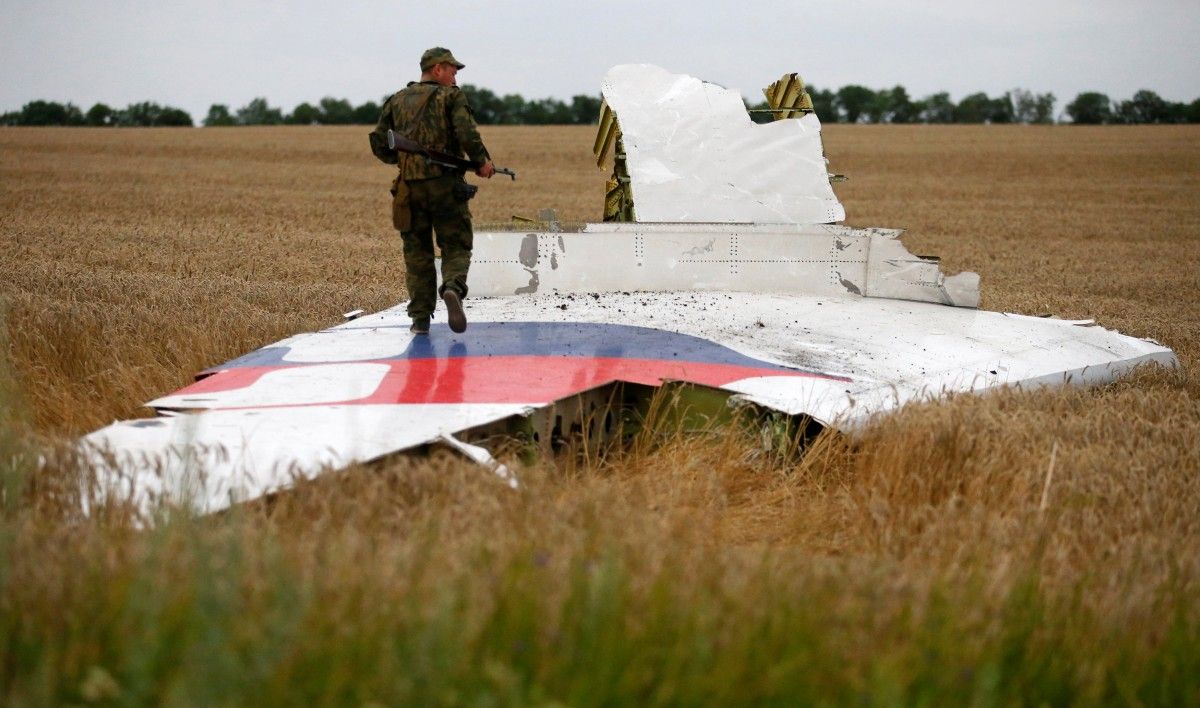
Ukrainian interest. Anniversaries with follow-up, revival of cooperation, and Lukashenko in Kyiv
Both the anniversary of the MH17 crash and the jubilee of the formal end of the conflict in Transnistria saw certain follow-ups this week . Ukraine and Georgia intend to boost cooperation, having declared strategic partnership. Alexander Lukashenko's visit to Kyiv did not go without incidents. Zakharchenko’s desire to establish "Malorossiya" looks both intoxicated chatter and part of the Kremlin's plan. Poland is looking into analogies between the current protests in Warsaw and the Ukrainian Maidan.
The downing by Russian hybrid forces of a Boeing 777 with 298 passengers and crew on board from the skies over Donbas on July 17, 2014, has seriously changed the West's perception of the conflict in eastern Ukraine. The tragedy has largely become a starting point for the EU and U.S. realization of the scale of hostilities in Donbas and the degree of Russia's involvement. By the way, it became known that on the eve of the airliner's crash, Russia closed down its airspace near the Ukrainian border for all passenger flights, which at the very least indicates the transfer of air defense assets from Russia to the militant-controlled areas. The Netherlands intends to conduct the MH17 on its soil and, although the investigation will be a lengthy one, is set to prosecute all those involved in this horrifying crime.
Russia is not willing to weaken its influence on the situation in Donbas. This is evidenced by the statements of the Kremlin-puppet “DPR leader,” Alexander Zakharchenko, who suggested setting up a new state of “Malorossiya” within the existing Ukrainian borders. The initiative not only includes traditional Kremlin wishes (federalization, letting go of Crimea, and dependence on Russia), but also some "democratic innovations" like a three-year emergency status with the ban on political parties.
It is interesting that all the main centers of influence on the conflict in Donbas distanced themselves from Zakharchenko. At the same time, Sergei Lavrov told European diplomats in Moscow that it was absurd to demand from Russia the fulfillment of the Minsk agreements. Meanwhile, the militants significantly intensified their attacks, which led to a sharp increase in casualties among the Ukrainian military. The State Duma this week passed a move to simplify the procedure for obtaining Russian citizenship by Ukrainian nationals, probably designed for those who loathe today’s government in Kyiv.
Another anniversary, the 25th anniversary of the formal completion of the conflict in Transnistria, has found an unexpected development. Moldova closed its airspace to an airplane with a Russian delegation on board, flying to the self-proclaimed Transnistria. In addition, the Moldovan parliament adopted a declaration demanding the withdrawal of Russian troops from the territory of the Republic. It seems to be no coincidence that Petro Poroshenko, who together with the Moldovan prime minister Pavel Filip opened a joint border crossing point recently, stressed Ukraine’s readiness to promote the reintegration of the neighboring state, where sustained stability is important for Ukraine.
Georgia is another state with which Ukraine seeks to deepen cooperation. Petro Poroshenko flew to Tbilisi on a state visit, the format of which was intended to emphasize that the page of ineffective bilateral relations has finally been turned. This fact should be confirmed by the declaration on strategic cooperation signed in by the two leaders. Ukraine and Georgia have many points for contact both in the economy and in foreign policy, in particular, European and Euro-Atlantic integration. Both sides could not resist sending their "greetings" to Mikheil Saakashvili, when signing a cooperation agreement between Ajaria and Ukraine’s Odesa region where the former Georgian president used to hold a governor’s post.
Alexander Lukashenko, a hybrid ally of the Ukrainian government, has paid a visit to Ukraine. Being a member of CSTO and the Eurasian Union, organizations dominated by Russia, Belarus at the same time tries to build mutually beneficial relations with Ukraine.
Lukashenko confirmed this line in Kyiv, publicly expressing his readiness to do everything that presidents Poroshenko and Putin entrust to him. There is nothing surprising in this, since the transformation of Minsk into a platform for negotiations in many ways contributed to a weakening of the isolation of Belarus on the European continent. The head of the neighboring state stressed the interest in increasing the trade turnover between Ukraine and Belarus, while Poroshenko emphasized the press's attention to the promise of his Belarusian counterpart that the border between the two countries would not become the border of war.
In the meantime, extraordinary events are taking place in Poland. Decision by the Polish parliament to subordinating the country's Supreme Court to the Ministry of Justice sparked massive protests of the opponents of the ruling Law and Justice (PiS) party. Although some periodically compare the rallies with the Ukrainian Maidan, the analogy is rather weak. On the other hand, the overwhelming craving by PiS to concentrate in their hands as much power as possible, not only leads to the rejection by a significant part of the Polish society but also causes negative reaction within the European Union.
Yevgeny Magda

